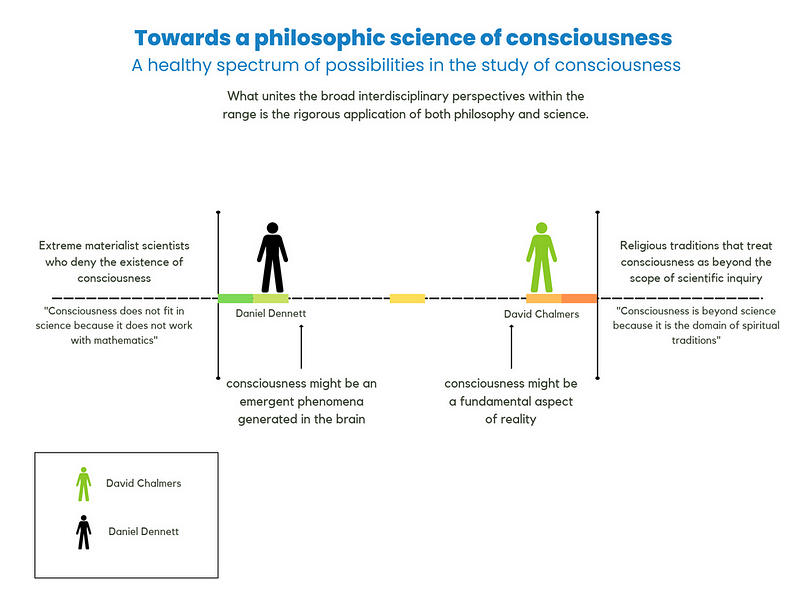In Memory of Daniel Dennett: A Philosophical Pioneer (1942-2024)
Written on
Chapter 1: The Legacy of Daniel Dennett
Daniel Dennett was a significant figure in the resurgence of consciousness studies that began in the early 1990s, a period when such inquiries were often overlooked by academic circles. While his contributions span a wide range of topics, I will focus primarily on his insights regarding consciousness.
Dennett’s Perspective on Consciousness
Dennett challenged the notion that consciousness is a separate, enigmatic essence apart from physical processes. He proposed that a complete understanding of consciousness could be achieved by examining brain function. One of his key theories, known as illusionism, suggests that consciousness and subjective experience are not as they appear; instead, they are constructs created by the brain's neural processes. This idea was frequently misunderstood, leading to debates, particularly with his colleague David Chalmers. My initial article for Consciousness Uncovered discussed these contrasting views, highlighting the tension between Chalmers' concept of mystery and Dennett's interpretation of illusion.

Dennett’s Academic Contributions
In 1978, Dennett's first influential book, "Brainstorms: Philosophical Essays on Mind and Psychology," garnered both academic and popular acclaim. This work initially critiqued the idea of free will, a position he later revised, showcasing the adaptability of a thoughtful philosopher. His subsequent book, "Consciousness Explained," published in 1991, became an essential text in the field, sparking widespread discussion and some criticism, with detractors dubbing it "Consciousness Unexplained."
His Engaging Style and Public Influence
Dennett's writing style was characterized by a playful approach that aimed to make complex concepts accessible to a broader audience. He actively participated in public discourse on philosophical matters until shortly before his passing. In a notable debate with Robert Sapolsky regarding free will, Dennett defended a view compatible with determinism, known as compatibilism. This contrasts sharply with Sapolsky's deterministic stance that dismisses the notion of free will, reflecting Dennett's commitment to engaging with significant philosophical questions until the end.
The Impact of His Work
I hold Daniel Dennett's contributions in high regard, recognizing their role in advancing discussions about consciousness, even if I do not align with all of his views. Despite the many unresolved questions in the field, Dennett’s work has prompted critical thinking and highlighted the necessity of framing the right questions as a vital step in our understanding. His thought-provoking ideas continue to inspire analytical discourse, a testament to his enduring influence in philosophy.
Special Features
To explore Dennett's ideas further, check out the following videos:
RIP Daniel Dennett (1942-2024) Final Words on Thinking Differently - YouTube This video reflects on Dennett's final thoughts about thinking differently and his legacy in the field of consciousness studies.
Remembering Daniel Dennett - YouTube A tribute video that encapsulates the key moments and ideas from Dennett's life and work.
Daniel Dennett: Stop Telling People They Don’t Have Free Will | Big Think In this clip, Dennett discusses the implications of free will and the importance of acknowledging personal agency.
Do We Have Free Will? / Daniel Dennett VS Robert Sapolsky A debate where Dennett confronts Sapolsky on the existence of free will, providing insights into their differing philosophical positions.
The 4 biggest ideas in philosophy, with Daniel Dennett for Big Think+ In this video, Dennett outlines four major philosophical concepts that have shaped modern thought.